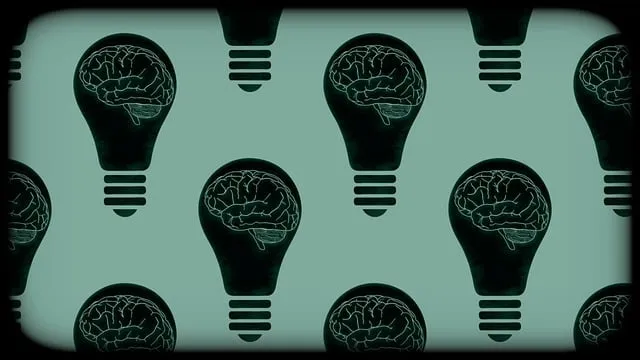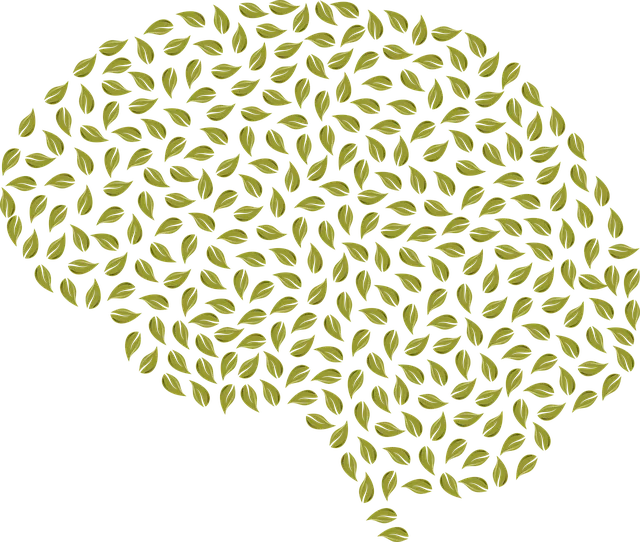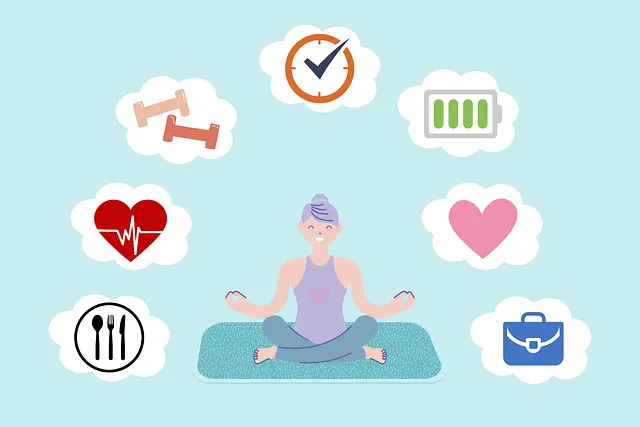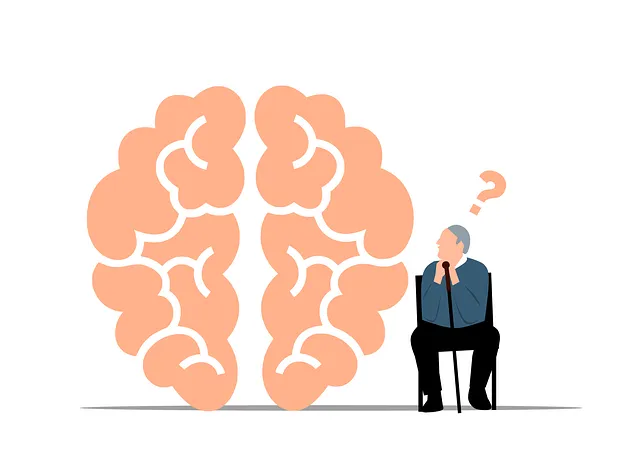The Northglenn Kaiser Permanente mental health center emphasizes Emotional Intelligence (EI) as a vital component of mental wellness, backed by positive reviews. By cultivating self-awareness, empathy, and active listening skills, individuals can better manage their emotions and those of others, leading to stronger relationships, improved decision-making, and enhanced stress management. The center's holistic approach, highlighted in reviews, promotes EI development through supportive environments, innovative programs, and safe spaces for emotional exploration, transforming lives with equitable access to quality mental health care.
Emotional intelligence (EQ) is a powerful tool for personal growth and well-being. Understanding and cultivating EQ can lead to improved relationships, better decision-making, and enhanced overall satisfaction in life. This article explores the concept of emotional intelligence, highlighting the significant role that institutions like Northglenn Kaiser Permanente Mental Health Center play in its development. We’ll delve into practical strategies for boosting self-awareness, building empathy, and mastering active listening—essential skills for navigating relationships and achieving personal success, as supported by positive Northglenn Kaiser Permanente mental health center reviews.
- Understanding Emotional Intelligence: A Foundation for Well-Being
- The Role of Northglenn Kaiser Permanente Mental Health Center in EQ Development
- Strategies for Enhancing Self-Awareness: The First Step Towards Emotional Intelligence
- Building Empathy: Connecting with Others on a Deeper Level
- Practicing Active Listening: A Key Component of Effective Communication and EQ
Understanding Emotional Intelligence: A Foundation for Well-Being

Emotional intelligence (EI) is a fundamental aspect of human interaction and well-being. Often described as emotional literacy, EI involves recognizing, understanding, managing, and effectively utilizing our own emotions and the emotions of those around us. At the Northglenn Kaiser Permanente mental health center, reviews highlight the growing recognition of EI as a crucial component in promoting mental wellness. By fostering emotional intelligence, individuals can enhance their relationships, make better decisions, and navigate life’s challenges with greater resilience.
Mental health awareness has led to increased interest in techniques that alleviate anxiety relief and stress management. Emotional intelligence serves as a game-changer in this context, empowering people to identify and address underlying emotional triggers contributing to mental health issues. Incorporating EI into daily life can lead to improved self-awareness, enhanced empathy towards others, and better strategies for managing emotions, ultimately promoting a more balanced mental wellness regimen.
The Role of Northglenn Kaiser Permanente Mental Health Center in EQ Development

The Northglenn Kaiser Permanente Mental Health Center plays a pivotal role in fostering emotional intelligence development through its comprehensive services and holistic approach to mental well-being. Reviewers consistently highlight the center’s supportive environment, emphasizing how therapists create safe spaces for individuals to explore their emotions and develop self-awareness—a cornerstone of EQ. Beyond traditional therapy sessions, the center offers innovative programs focused on self-care practices, trauma support services, and emotional healing processes, catering to diverse needs.
This mental health hub stands out in the Northglenn community by providing tailored interventions that go beyond symptom management. By integrating various therapeutic modalities, the center empowers clients to build resilience, enhance their ability to manage stress, and cultivate healthy relationships—all essential components of emotional intelligence. Positive feedback from former patients underscores the center’s commitment to transforming lives through equitable access to quality mental health care.
Strategies for Enhancing Self-Awareness: The First Step Towards Emotional Intelligence

Developing emotional intelligence begins with cultivating self-awareness—a crucial skill that enables individuals to recognize and understand their emotions, thoughts, and triggers. This first step is a cornerstone for personal growth and effective communication, as it allows one to gain insights into their unique emotional landscape. At the Northglenn Kaiser Permanente mental health center, reviews highlight the importance of these foundational practices in fostering well-being.
Self-care practices play a significant role in enhancing self-awareness. Dedicating time for introspection, journaling, or mindfulness exercises can help individuals connect with their inner experiences. Additionally, healthcare provider cultural competency training and risk management planning for mental health professionals are essential resources that encourage practitioners to reflect on their own emotional states, thereby improving patient care through heightened self-understanding and empathetic responses.
Building Empathy: Connecting with Others on a Deeper Level

At the Northglenn Kaiser Permanente mental health center, reviewed highly for its holistic approach, building empathy is a cornerstone of their emotional intelligence development programs. Connecting with others on a deeper level involves active listening, understanding diverse perspectives, and cultivating compassion—skills that not only enhance relationships but also foster a sense of belonging and support. This empathetic approach is crucial in promoting emotional well-being and conflict resolution techniques, enabling individuals to navigate challenging interactions with greater confidence and resilience.
Through various workshops and therapeutic sessions, the center guides participants in recognizing and managing their emotions effectively while developing skills to empathize with others. By practicing these techniques, individuals can improve their ability to respond sensitively to others’ needs, thereby strengthening bonds within personal and professional spheres. This holistic approach, combined with confidence-boosting strategies, equips individuals with the tools needed to lead more fulfilling lives and contribute positively to their communities.
Practicing Active Listening: A Key Component of Effective Communication and EQ

At the Northglenn Kaiser Permanente mental health center, reviews highlight the importance of various tools for emotional intelligence building. One key component that stands out is active listening—a skill that fosters effective communication and enhances emotional intelligence (EQ). By practicing active listening, individuals can improve their relationships and overall well-being, as it encourages understanding and empathy towards others. This simple yet powerful technique involves fully concentrating on the speaker, providing feedback, and asking relevant questions to ensure comprehension.
Integrating active listening into daily interactions can significantly contribute to one’s mental health journey. It forms a crucial aspect of self-care routine development for better mental health, as it promotes mindfulness and emotional awareness. Moreover, engaging in mental wellness journaling exercises guidance alongside active listening can provide individuals with a space to reflect on their experiences and emotions, solidifying the benefits of this communication style. Community outreach program implementation can also be enhanced through active listening, ensuring that initiatives resonate with the needs and concerns of those they aim to support.
Emotional intelligence, a key factor in personal and professional success, can be cultivated through various strategies. By understanding its importance, as outlined in this article, individuals can begin their journey towards enhanced well-being. The Northglenn Kaiser Permanente Mental Health Center plays a vital role in promoting EQ development, offering valuable resources for self-awareness, empathy, and active listening. These skills, when mastered, not only improve relationships but also contribute to a more fulfilling and balanced life. Incorporating these practices into daily routines can lead to significant personal growth, as evidenced by the positive impact on individuals seeking mental health services at Northglenn Kaiser Permanente—a testament to the center’s commitment to holistic well-being.






